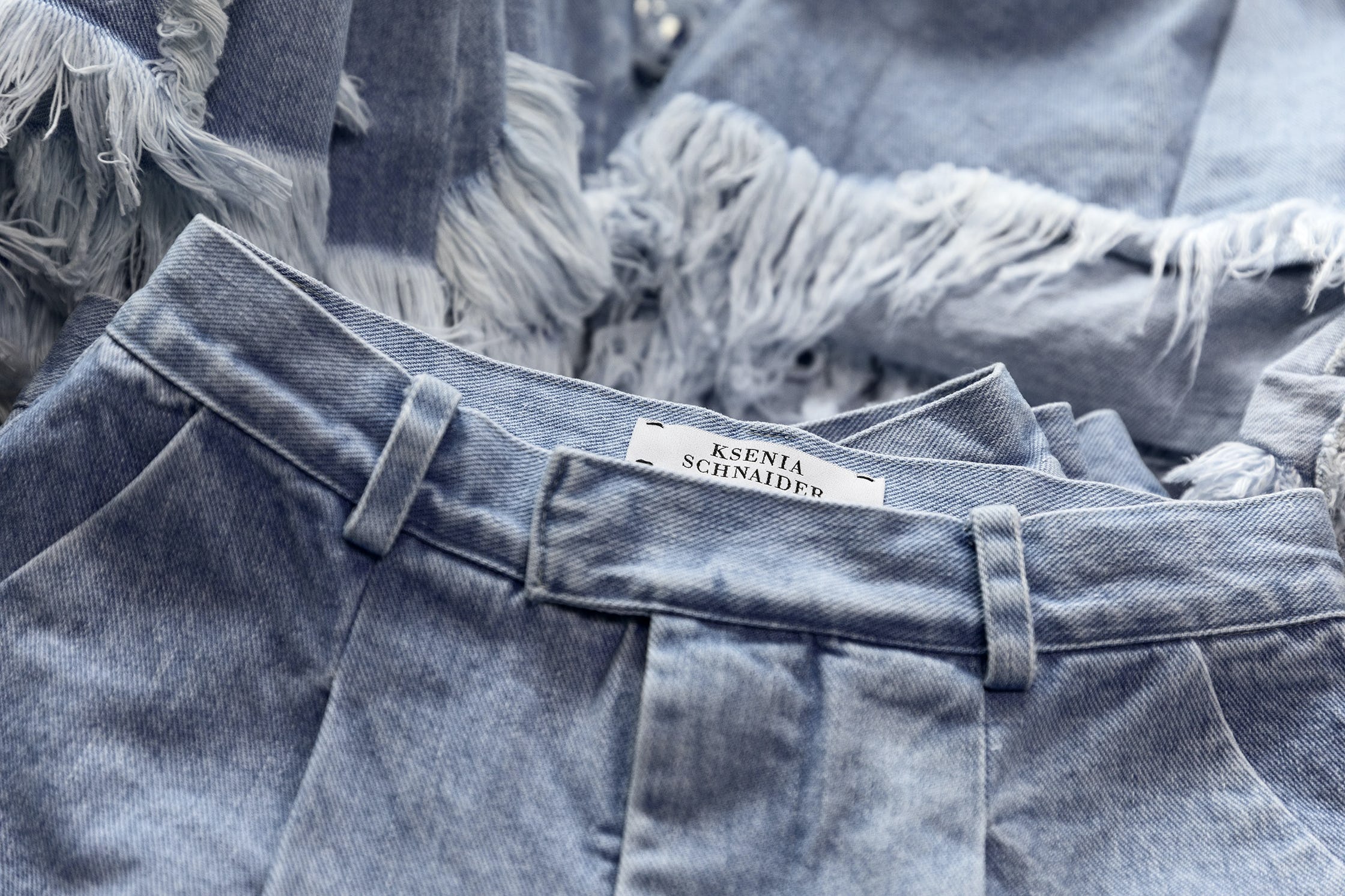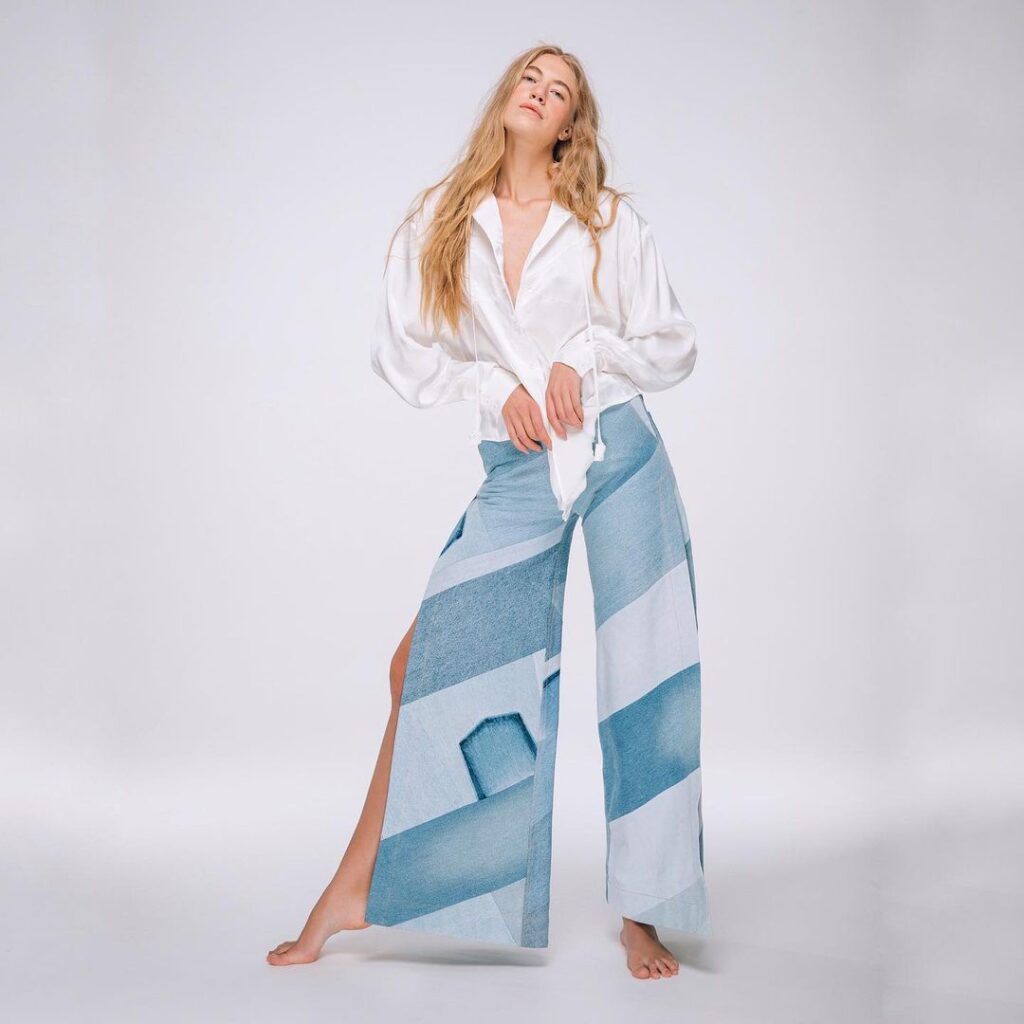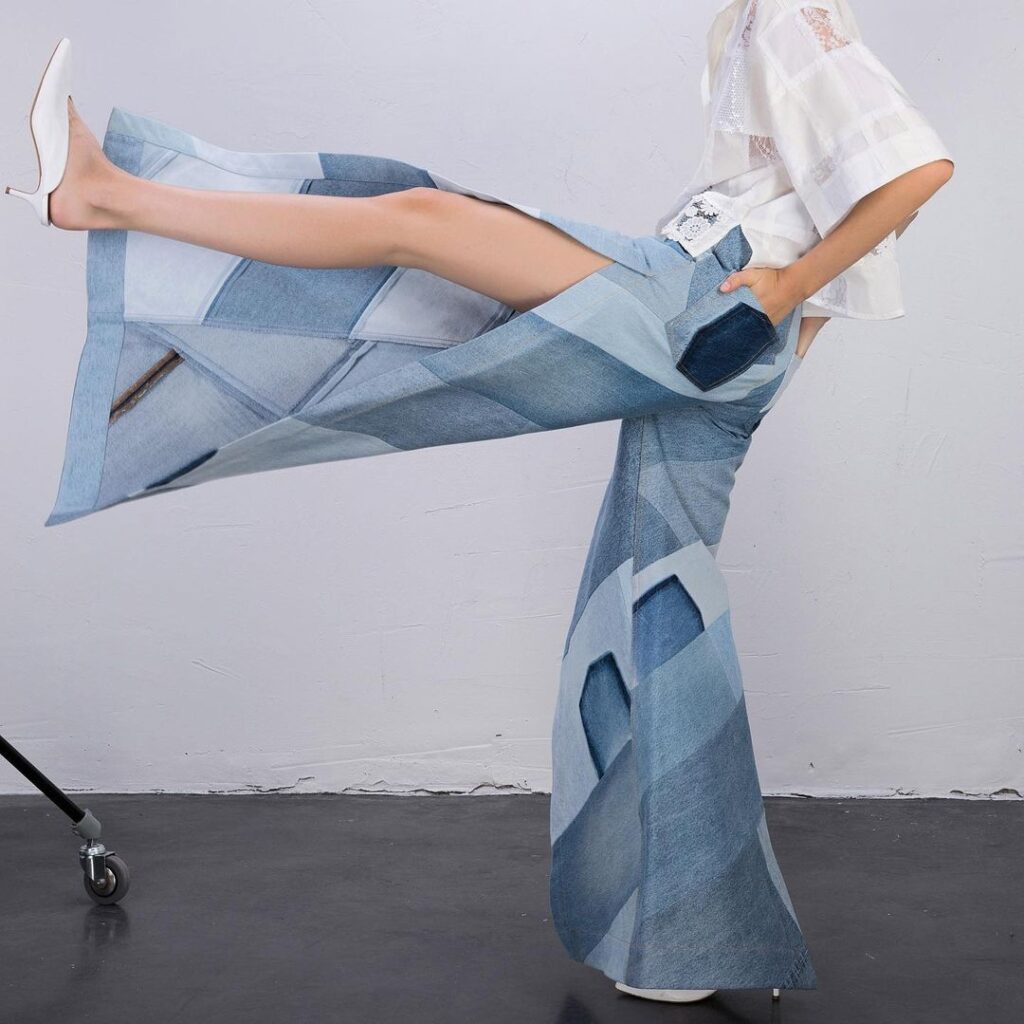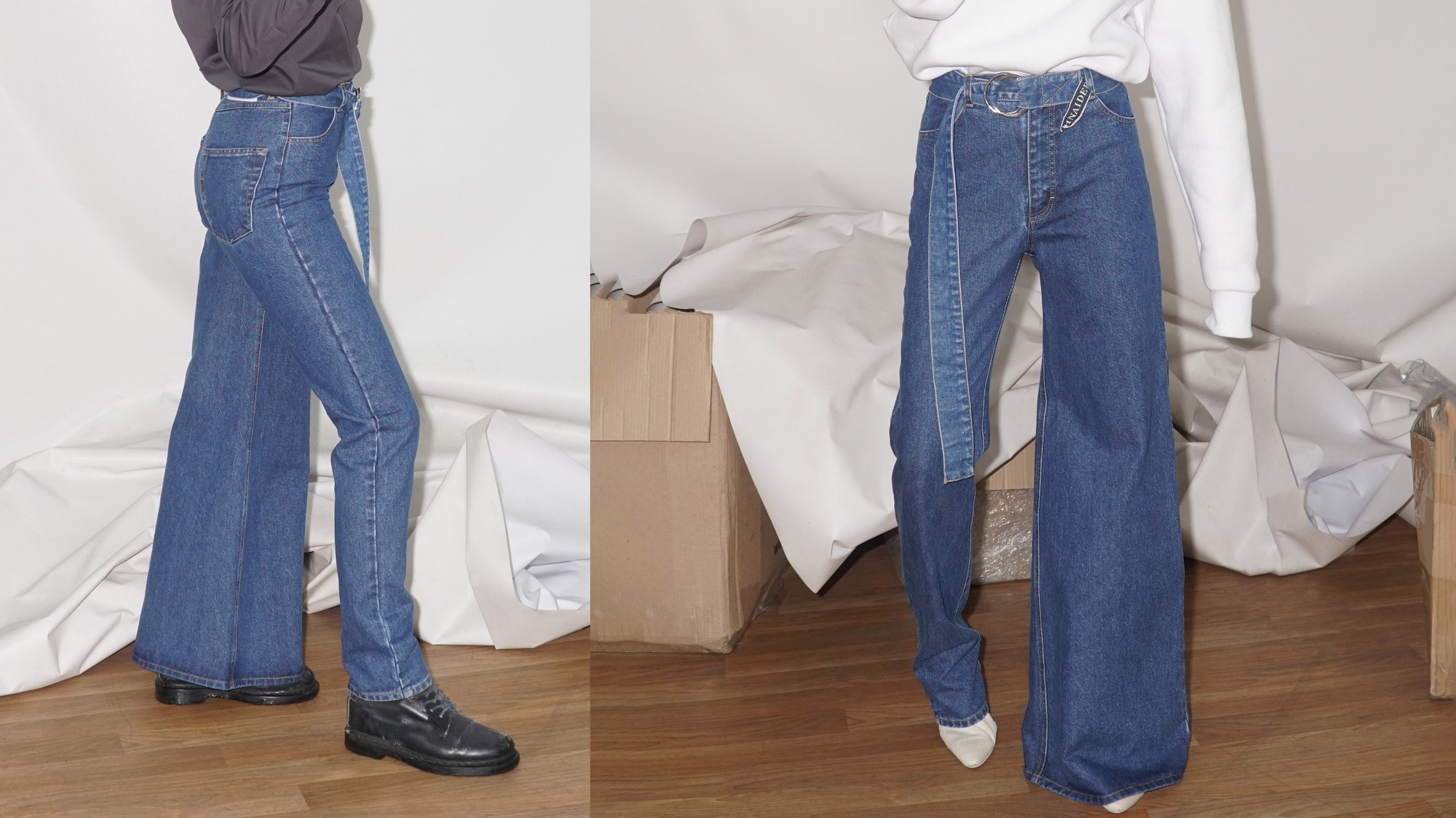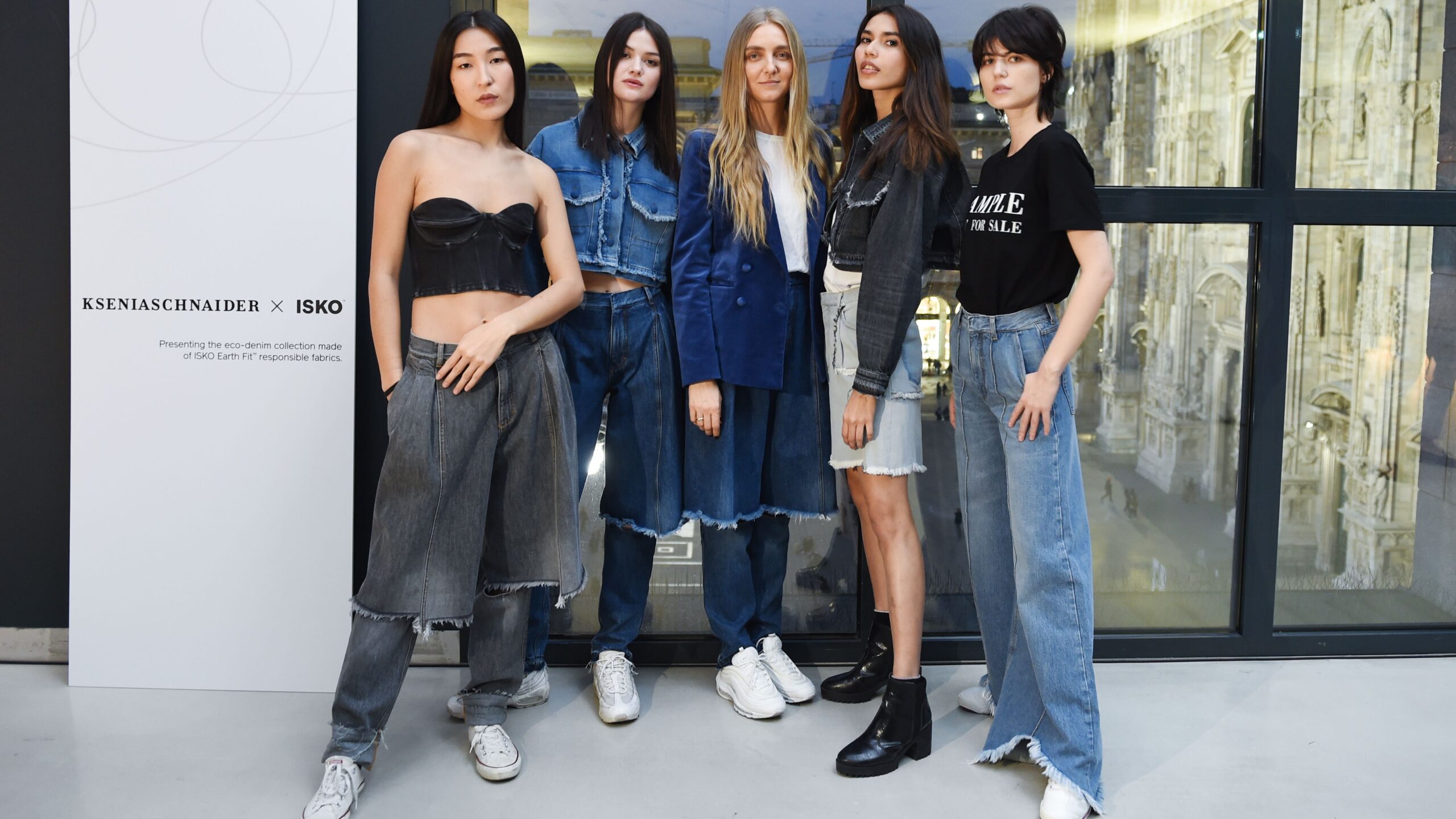The production of denim is among the most polluting in the world, it requires a lot of water and the use of dangerous chemical components. To produce just one pair of denim requires almost 9500 liters of water used to immerse the fabric in 15 dyeing tanks. In recent years, fortunately, many brands are working hard to reduce consumption and use natural and sustainable products.
Virtuous example is Ksenia Schneider, fashion label founded in Kiev in 2011 by designers Ksenia and Anton Schnaider. Couple in life and partner in work, the two create clothes in total symbiosis. The graphic designer is responsible for creating original and unique prints, while the ex-model and dancer chooses the materials, designs and cuts the fabrics. The result is a patchwork of reworked materials and impeccable cuts that give life to originally sustainable garments, sold in over 16 countries and on major fashion e-retailers such as YOOX, Farfetch and Shopbop.
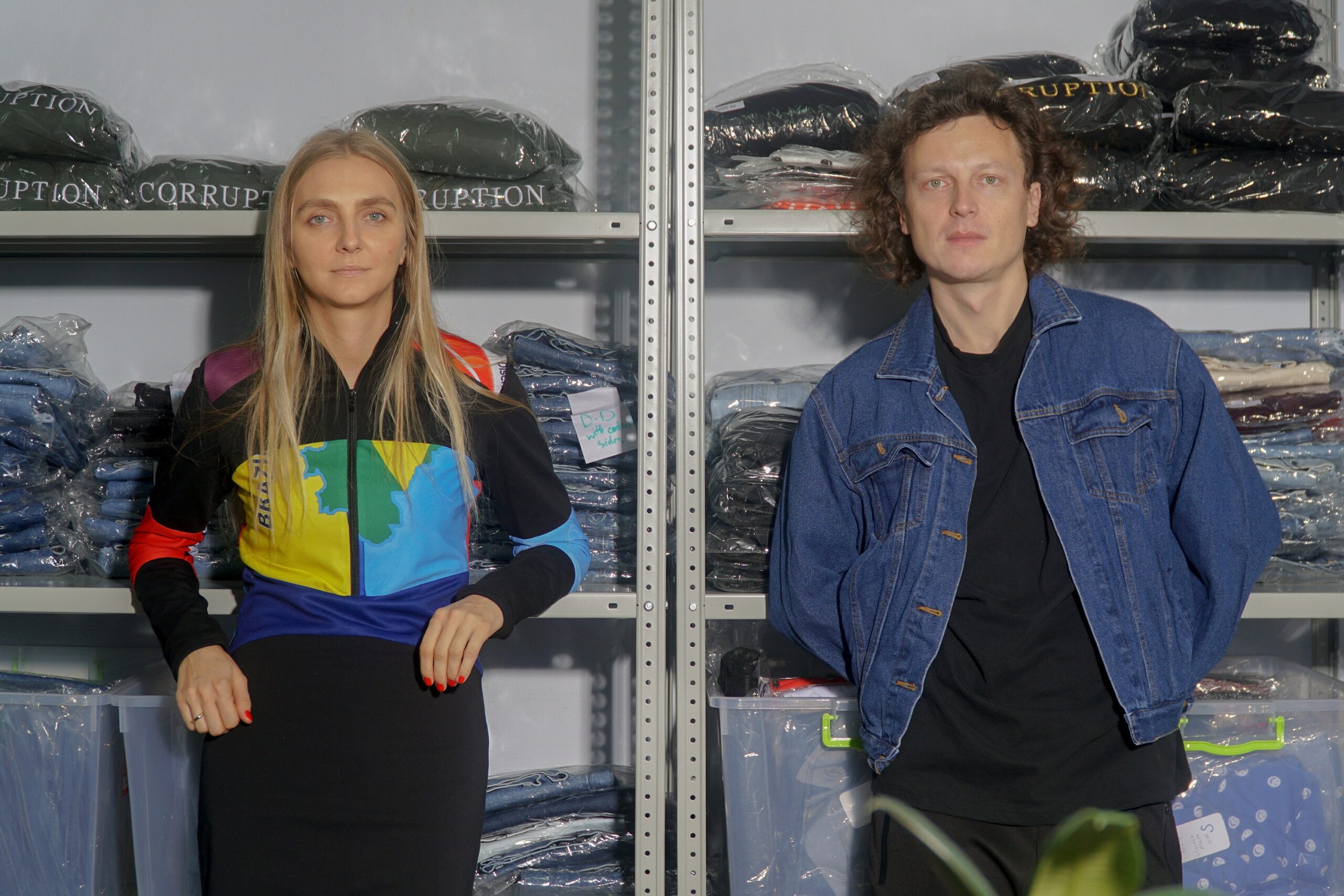
From blue jeans to green denim
For the couple, and in particular for the fashion designer, sustainability starts from the research and selection of materials. Ksenia begins a meticulous research among vintage markets, flea markets and small stores in the center as the famous Lesnoy bazaar in Kiev. Second-hand Levi’s, Lee and Wranglers are the canvas for avant-garde creations such as demi-denim, asymmetrical jeans and denim-fur.
After careful washing and drying, the recovered fabrics are carefully deconstructed, sometimes leaving some of the original stitching in contrast. The second step is to cut them into a new shape and reassemble them while maintaining the frayed finish as a hallmark, with attention to the aesthetic juxtaposition of the different color washes. It takes three pairs of vintage jeans to produce a single pair of Demi-Denim jeans and five days to create from 8 to 10 pairs. About 700 pairs of jeans are reprocessed each month to produce 3,000 garments, each one unique, for a recovery of over 5 tons of textile waste.
For FW 2020 and SS21 Ksenia used fabric samples that are usually sent by manufacturers and generally thrown away, archival pieces and leftover fabric. The garments will only be available on demand with the dual goal of eliminating deadstock and reducing overproduction in the fashion industry.
Cultural heritage and avant-garde vintage denim
Ksenia’s boundless passion for denim is tied to her origins and to what the fabric meant to the post-Soviet generation. In the Soviet Union jeans were a real status symbol. Emblems of luxury and well-being, often only available on the “black market”, the fashion designer remembers when her father would lend her his only pair for special occasions.
This has somehow influenced the brand’s establishment. Ksenia admitted that she didn’t immediately confess to the first bold local buyers that the garments came from reclaimed materials. Still anchored in the notion that a garment should first and foremost “look good and make people look good, rather than be good for the planet”, the fear was that they would be perceived as having little value.
Despite early market hesitations, the fashion designer did not give up creating clothes with vintage fabrics but cutting-edge designs. Ksenia Schnaider was the first, and so far still the only, Eastern European fashion brand to support conscious fashion. This earned it the nomination as Sustainable Brand of The Year 2018 by the Ukrainian Fashion Week committee.
Creative Assemblies
What consecrated it in the global street-style fashion scene, however, were the shots where celebrities of the caliber of Dua Lipa, Adwoa Aboah and Bella Hadid wear the much-discussed and sought-after demi-denim. After years of experimentation, the combination of a Bermuda shorts and jeans with a masculine cut, visible only on the front and emphasized by a slit on the knees, made its way into the S/S 2016 collection at Mercedes-Benz Kiev Fashion Days.
Lyst (the authoritative fashion search engine) has elected them among the new fashion trends of 2017 and models and fashion bloggers have been wearing them during the fashion weeks. So the demi-denim have recorded a succession of sold-out in a very few hours on the various online retailers.
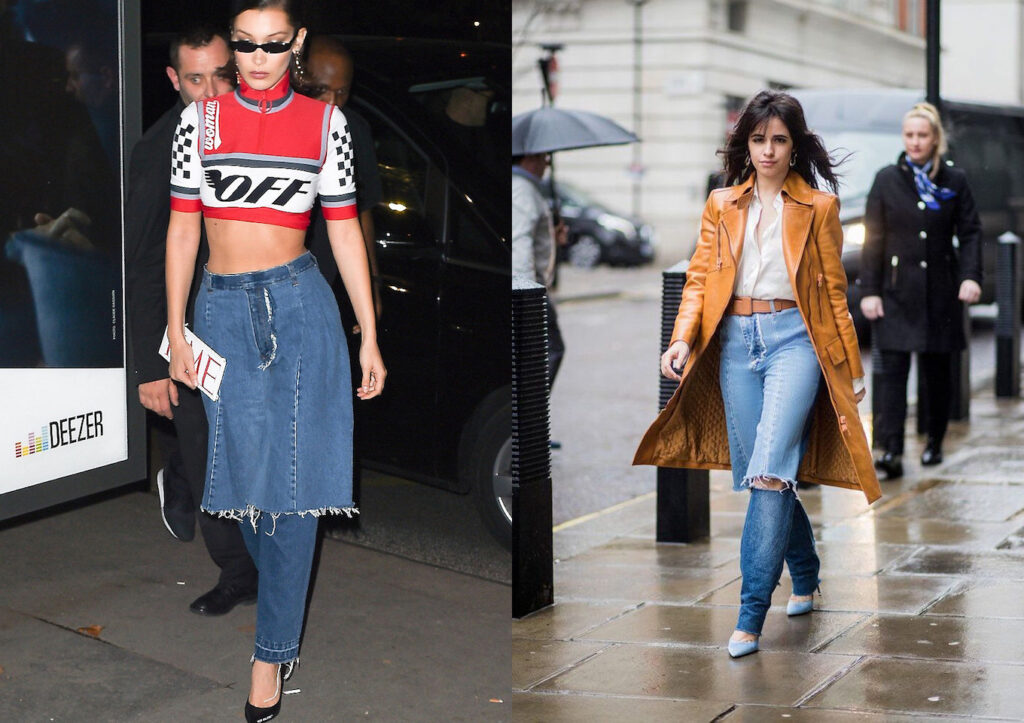
Same lucky fate for the asymmetric jeans. On the one hand a straight and narrow leg and on the other a flared one, in 2019 they landed at the Haute Couture week thanks to Celine Dion. Precisely because of their extravagance, Ksenia Schnaider suggests to pair them “simply” with high heels and basic hoodies or with classic loafers and masculine sweaters.
“KSENIA SCHNAIDER X ISKO” CAPSULE COLLECTION
In March 2019, demi-denim and asymmetric jeans were reinterpreted in an eco-friendly way using ISKO Earth FitTM sustainable denim. The leading sustainable denim company uses only organic cotton, per-consumer recycled cotton and post-consumer recycled polyester derived from Pet bottles. It is the only one to have been awarded dual recognition: the EU Ecolabel and the Nordic Swan Ecolabel. The first is awarded to products that meet high environmental standards. The second evaluates the raw material, the amount of waste emitted and the recycling rate of the materials.
This collaboration was the result of the selection of Ksenia among the 7 emerging talents selected for the second edition of “The Next Green Talents”. The project developed in collaboration with Yoox and Vogue Italia had as theme the upcycling, i. e. the production of new goods by recycling existing materials.


